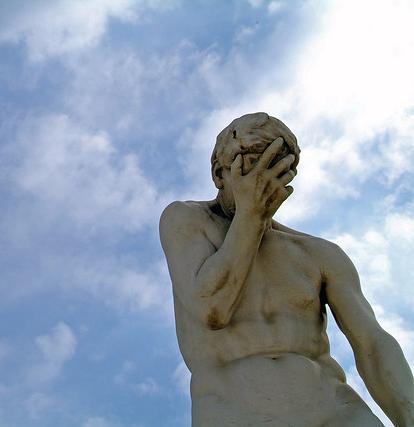Recently the podcast Radiolab took on the right to be forgotten, a topic I addressed back in February. More specifically, Radiolab listened in as a group of journalists discussed removing detrimental references to individuals from news stories. It reminded me of similar discussions where physicians deal with similar factual but damaging references, the hospital credentials committee.
Having all of your state-required licensing is necessary, but not sufficient to join a hospital staff. The credentials committee serves as the gatekeeper to the hospital’s community; assuring as best they can that only reputable, qualified physicians join the therapeutic community. Over time, this oversight role has gone from a quick nod and wink to a time-consuming process involving criminal background checks, letters of reference, and a query into the National Practitioners Data Bank (NPDB). Today’s credentials committee practices a stricter form of due diligence, because, in the event of a poor medical outcome, they may find themselves as a party in a malpractice suit because of “negligent” credentialing.
The NPDB is maintained by the HHS and requires reporting “any negative action or finding” by state licensing authorities, peer review organizations, or private accreditation entities. While the information is confidential, it is available to all the reporting agencies as well as to individual physicians. A physician may dispute a report, and there is a process for correction. The only time a report is withdrawn or expunged is when both the physician and the reporting entity agree that there has been a mistake – a rare instance. Journalists view their work as “the first draft of history,” the contemporaneous findings that shouldn’t be interfered with, let alone forgotten. It is fair to say that the NPDB functions as the first draft of a physician’s history.
The need to know
As an increasing number of journalists are asked to forget past reporting, credentials committee are asked the equivalent, do you forget past mistakes, can a physician overcome an error?
There is a simple argument from the perspective of patients and the hospital community for the answer to be no. Certainly, a patient would consider these “negative actions or findings” pertinent in choosing to entrust themselves to these physicians; and a hospital would find it relevant to know about a physician who will work and assist others in their community of physicians and patients. Through this lens, the information helps with significant decisions and is a public “good.”
But whatever misdeeds have been transpired, the state licensing board has allowed them to retain their license. Having done both the “crime and the time,” is there a statute of limitations on our judgment?
Credentials committees often seek references from those who know the individual, to provide additional insight, to give context and weight to events, and as a way of out-sourcing their due diligence. Unfortunately, because of concerns about litigation, most letters of reference are bland boilerplate. The only chance of knowing an outside source’s “truth,” is to pick up the phone and have an off-the-record conversation – a setting ripe for the old days of a “nod and a wink.”
Has the behavior crossed a “red-line” limitation?
In the Radiolab broadcast, the journalists drew the line at violent behavior, which was always to be remembered. For credentials, it is often over substance abuse issues. But even then, the boundary is fuzzy. Does the substance make a difference, is a DUI for alcohol different than for the use of opioids? Does it carry more weight if the practitioner is an anesthesiologist with ready access to drugs or an internist whose access is far more limited?
The journalists grappled with balancing the harm to the community with the damage it caused those in their news reports. Similarly, the hospital gatekeeper must balance the harm to the hospital community to the inability of a physician to be employed. Remember, these doctors have met their mandated societal obligations; they have a license, the state says they may return to work. Who are we to judge?
The journalists were careful to state that their decisions were not about forgiveness, that was not their role, nor is it the role of a credentials committee. Nor was it about another form of judgment, redemption. Had enough penance been made, were they different people now, was the one “stupid thing” they had done been atoned? I often framed my thinking in those terms, and I may have been wrong in taking that approach.
There is no perfect way to forget the past.
The journalists were asking if forgetting would allow the person to get on with their lives without that old baggage? Could they unshackle Morley’s ghost from the chains of his past? The same question faces the credentials committee made more personal because it affects their community, not the abstraction of “society.” It is a decision made more difficult because by the rules of the NPDB if the credentials committee rejects the physician’s application, that too must be reported – a continued piling on of shame.
For the journalists allowing forgetting reduced the power of the past to determine the present; creating a space for compassion or empathy. Like the journalists, every credentials committee makes a case by case determination, the ultimate in personalized treatment. But personalized decisions are, by definition subjective, which in turn leads to disparities; these committees act, with all their good intentions, in isolation, there are no overarching rules or guidelines.
We must protect our patients and our therapeutic communities, but how do we go about policing ourselves? I think the first step is to open the door to the credentials committee wider; beginning a discussion amongst the many committees and stakeholders in our state and national communities as to what we should or should not be doing.




